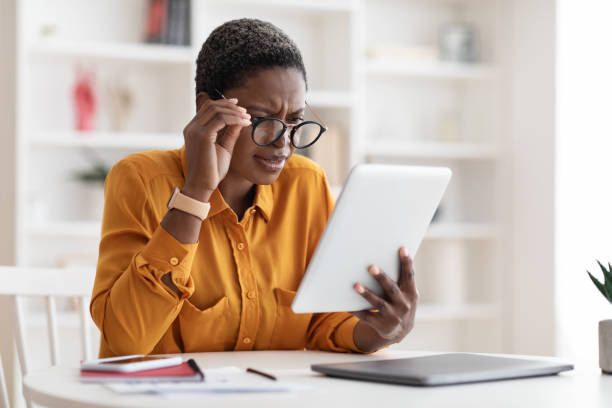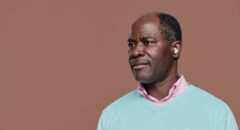
One of the scariest things about hearing you have diabetic macular edema (DME) is hearing that you may lose your eyesight temporarily or permanently. But what do you do when that fear becomes a reality? People who are visually impaired are more likely to have depression or anxiety, according to a study published in December 2020 in the journal Clinical Ophthalmology. Although vision loss can be challenging and disrupt your life, you aren’t alone. There are many vision aids and treatment options available to help you manage DME. But treatment aside, it is equally important to prioritize your emotional health. Here are eight ways to cope with vision loss.
1. Keep your DME diagnosis in perspective.
DME isn’t always permanent. In fact, when caught early, vision impairment is usually temporary. Certain treatments can also help restore your vision.
“Luckily, most patients come in with only moderate visual impairment,” Sunir Garg, MD, co-director of the retina research unit and a professor of ophthalmology on the Retina Service of Wills Eye Hospital at Thomas Jefferson University in Philadelphia tells Everyday Health.
You May Also Like
He defines moderate visual impairment as having trouble reading or seeing road signs. “We can get most [of them] driving again comfortably and back at work,” he says.
In more advanced cases, you may never regain all of your sight. However, there are treatments available that can effectively slow the progression of DME to ensure that you keep the eyesight you do have.
Facing the condition early on and addressing any vision problems that arise as soon as possible is the only way to protect your eyesight.
You May Also Like
RELATED: 3 Ways Low-Vision Specialists Can Help Save Your Eyesight
2. Find a good pair of glasses.
DME treatments, particularly anti-VEGF (vascular endothelial growth factor) injections, work quickly and effectively to improve your vision. As you await those treatments though, you may benefit from being fitted for a pair of glasses that can help you read, Lee M. Jampol, MD, an ophthalmologist at Northwestern Memorial Hospital and the Louis Feinberg, MD, Professor of Ophthalmology at Northwestern University Feinberg School of Medicine in Chicago tells Everyday Health.
3. Use a low-vision aid.
Can you read headlines, but struggle to see the fine print?
Magnifying screens and lenses, large-print books and audiobooks, telescopes, and large-print phones and watches are all great resources if you’re struggling to read and carry out daily activities, according to the American Academy of Ophthalmology (AAO).
4. Ask for help.
When in doubt, don’t hesitate to ask your family and friends for help. This is much safer than trying to drive yourself.
5. Consider vision rehabilitation.
If you’ve lost elements of your vision permanently, a low-vision specialist can teach you how to maximize your sight and maintain your independence.
6. Embrace your feelings.
Coping strategies such as acceptance, spirituality, and social support may help you deal with the stress that can follow a DME diagnosis, according to a research review published in the journal Ophthalmology.
Additionally, people who use positive coping strategies (preparing for challenging situations, self-reflection) have better overall functioning and quality of life, according to a study published in May 2019 in the Indian Journal of Ophthalmology.
A mental health therapist may also be beneficial.
7. See a specialist.
Your ophthalmologist, a low-vision specialist, and an occupational therapist can all be good resources to help you maintain your independence, notes the AAO.
8. Seek support for your diabetes care.
This may sound like a no-brainer, but one of the best ways to treat your DME is to take control of your diabetes by sticking to your diet and exercise routine and taking your medications as prescribed.
If you need additional help, many hospitals offer diabetes support groups.









